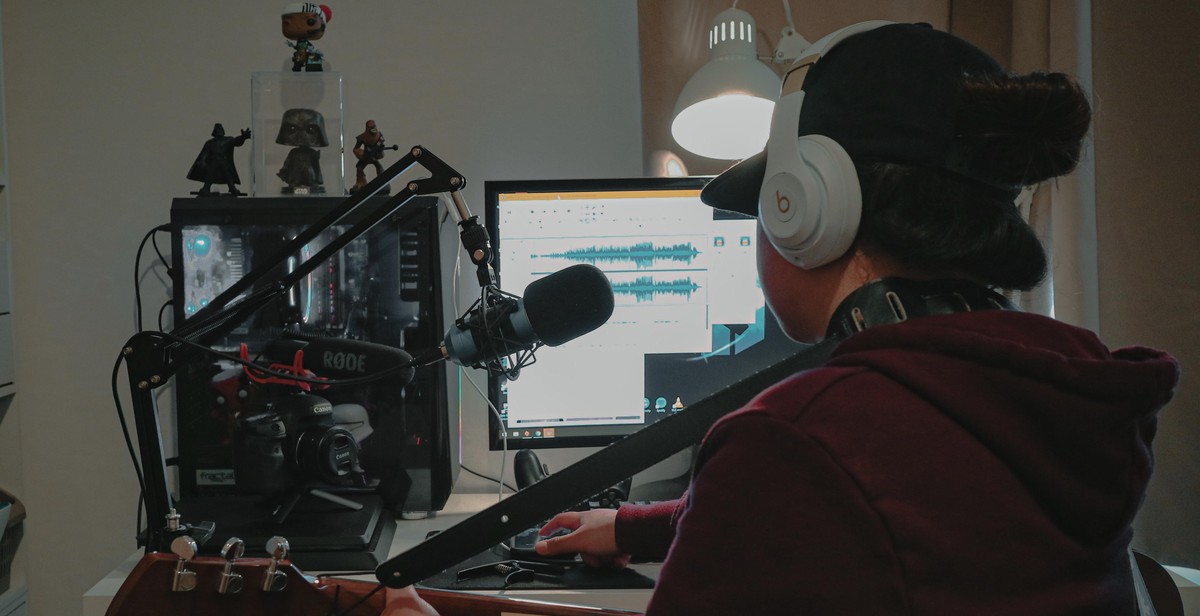How to Improve Your Singing Rhythm: Techniques for Precision and Timing
As a singer, you may have heard that having a good sense of rhythm is essential to your performance. But why is rhythm so important in singing?
Rhythm refers to the timing and precision with which you sing each note and phrase. It is the foundation of music and helps to create a sense of groove and momentum in a song. Without good rhythm, a song can feel disjointed and lack energy.
Having good rhythm also allows you to connect with your audience on a deeper level. When you sing with precision and timing, your performance becomes more engaging and captivating, drawing listeners in and keeping them hooked.
Improving your singing rhythm may seem daunting, but with the right techniques and practice, it is achievable. In this article, we will explore some effective methods for developing your sense of rhythm and mastering the art of singing with precision and timing.

Techniques for Improving Your Singing Rhythm
Improving your singing rhythm is essential for any aspiring singer. It helps you to keep time, stay in sync with the music, and deliver a flawless performance. Here are some techniques that can help you improve your singing rhythm:
Metronome Practice
A metronome is a device that produces a steady beat to help musicians keep time. It is an essential tool for singers who want to improve their rhythm. To practice with a metronome, set the tempo to a comfortable speed and sing along with it. Start with simple songs and gradually increase the tempo as you get better.
Metronome practice helps you to develop a sense of timing and precision. It also helps you to stay in sync with the music and other musicians.
Clapping and Counting
Clapping and counting is another effective technique for improving your singing rhythm. It involves clapping your hands or tapping your feet to the beat of the music while counting the rhythm out loud. This technique helps you to internalize the rhythm and feel the music.
You can practice clapping and counting with different songs and rhythms. Start with simple rhythms and gradually move on to more complex ones.
Breathing Exercises for Rhythm
Breathing exercises are essential for singers who want to improve their rhythm. They help you to control your breath and deliver your notes with precision and timing. To practice breathing exercises for rhythm, start by taking deep breaths and exhaling slowly while counting the rhythm out loud.
You can also practice breathing exercises while singing. Start with simple songs and gradually move on to more complex ones. Focus on maintaining a steady rhythm while controlling your breath.
Vocal Exercises for Rhythm
Vocal exercises are an excellent way to improve your singing rhythm. They help you to develop your voice and control your pitch and timing. To practice vocal exercises for rhythm, start with simple exercises such as scales and arpeggios.
Focus on maintaining a steady rhythm while singing the exercises. You can also practice vocal exercises with a metronome or while clapping and counting.
- Practice regularly with a metronome to develop your sense of timing and precision.
- Clap and count while practicing to internalize the rhythm and feel the music.
- Practice breathing exercises to control your breath and deliver your notes with precision and timing.
- Practice vocal exercises to develop your voice and control your pitch and timing.
By incorporating these techniques into your practice routine, you can improve your singing rhythm and deliver a flawless performance.

Tips for Precision and Timing
Improving your singing rhythm requires precision and timing. Here are some tips to help you improve your precision and timing:
1. Listen to the Music Carefully
One of the most important things you can do to improve your singing rhythm is to listen to the music carefully. Pay attention to the tempo, rhythm, and timing of the song. Listen to the beat and try to feel the pulse of the music. This will help you to stay on beat and in time with the music.
It’s also important to listen to the other instruments in the song. This will help you to stay in sync with the band or accompaniment and improve your overall timing.
2. Practice with a Band or Accompaniment
Practicing with a band or accompaniment is a great way to improve your singing rhythm. This will help you to get used to singing with other musicians and improve your timing. It will also help you to stay on beat and in time with the music.
If you don’t have access to a band or accompaniment, there are many online resources that can help. You can find backing tracks and karaoke versions of songs online that you can practice with.
3. Record Yourself Singing and Analyze Your Timing
Recording yourself singing is a great way to analyze your timing and improve your precision. Listen to the recording and pay attention to where you are off-beat or out of time with the music. This will help you to identify areas where you need to improve.
You can also use a metronome to help you stay on beat while recording yourself. This will help you to develop a better sense of timing and improve your overall rhythm.
Once you have identified areas where you need to improve, practice those sections of the song over and over again until you can sing them perfectly in time with the music.
Conclusion
Improving your singing rhythm takes time and practice, but with these tips, you can develop a better sense of timing and improve your overall precision. Remember to listen to the music carefully, practice with a band or accompaniment, and record yourself singing and analyzing your timing. With these techniques, you’ll be on your way to becoming a better singer with great rhythm.

Conclusion
Improving your singing rhythm is a crucial aspect of becoming a great singer. Precision and timing are essential components of a good performance, and it takes time and practice to achieve them. In this article, we have discussed various techniques that can help you improve your singing rhythm.
Practice Makes Perfect
One of the most important things you can do to improve your singing rhythm is to practice regularly. Set aside some time each day to work on your timing and precision. Start with simple exercises, such as clapping or tapping your foot to a beat, and gradually work your way up to more complex rhythms.
Use a Metronome
A metronome is a valuable tool for singers who want to improve their rhythm. It provides a steady beat that you can practice along with, helping you to develop a sense of timing and precision. You can find metronome apps online or purchase a physical metronome at a music store.
Listen to Yourself
Recording yourself singing can be a helpful way to identify areas where you need to improve your rhythm. Listen to your recordings and pay attention to where you might be rushing or dragging. Use this feedback to adjust your timing and improve your overall performance.
Work with a Vocal Coach
A vocal coach can provide valuable feedback and guidance when it comes to improving your singing rhythm. They can help you identify areas where you need to improve and provide exercises that can help you develop your timing and precision.
Improving your singing rhythm takes time and effort, but with practice and dedication, you can achieve great results. Use the techniques discussed in this article to develop your skills and become a better singer.
